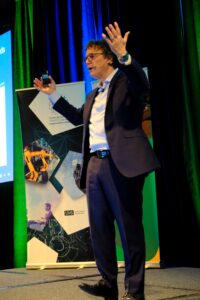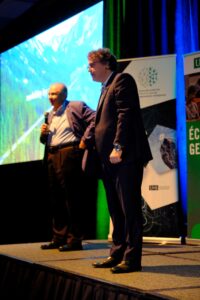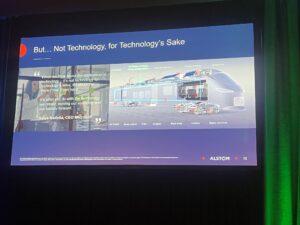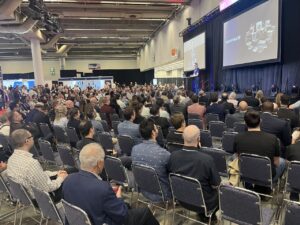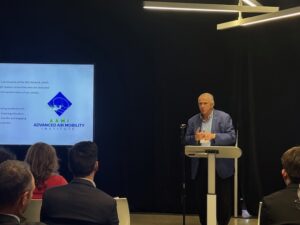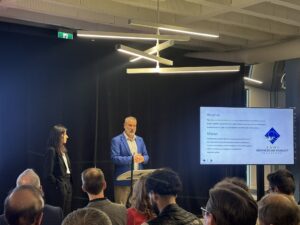The 3rd International SDG Innovation™ Forum was held on June 19, 2025, at the Palais des congrès de Montréal, bringing together over 400 participants around the theme:
🎯 “Innovating for a Greener Future: Digital Solutions for SMEs.”
Researchers, business leaders, government officials, students, and international partners gathered to discuss key issues in sustainable innovation, in a spirit of collaboration and real-world impact.
🔹 Highlights of the Day
✔️ Opening Ceremony
Featuring remarks by Hany Moustapha, Yaoyao Fiona Zhao, Mohamed Cheriet, Patrick Hamelin (MEIE), and Tamara Arutyunyants (University of Stuttgart – TRACES), showcasing the progress of the SDG Innovation Network since its launch in 2019.

✔️ Panel on Smart and Green Air Mobility
ADM, Wisk, and ÉTS shared their vision for a cleaner, more autonomous, and connected future in aviation.

✔️ Health and Artificial Intelligence
An interdisciplinary discussion on the role of AI and digital twins in enhancing healthcare services.

✔️ Green Digitalization in Québec
Launch of the White Paper on Eco-Responsible Digital Transformation, presented by Nadine Bou Orm (ÉTS) and Youssef El Hjaji (MEIE).

✔️ SME Projects and Frugal Innovation
Concrete initiatives from the Digital Transformation Offensive (OTN) and inspiring examples of sustainable innovation in Quebec’s SMEs.
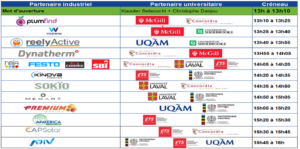
✔️ Student Workshops & 180-Second Pitch Contest
Workshops led by students from the CREATE program, followed by a dynamic final round where young researchers presented their projects in just 3 minutes.
🏆 Student Pitch Contest – 2025 Winners
- 1st Prize – Charles Beaulieu
- 2nd Prize – Daniel Amoshie & Xavier Zwingmann
- 3rd Prize – Jean-Thoms Sexton & Manuel Chastenay
🙏 Acknowledgments
Thank you to our institutional and industrial partners:
MEIE, Pratt & Whitney, ADM, Alstom, CAE, and the University of Stuttgart (TRACES).
Special thanks to our academic partners: ÉTS, McGill, UQAM, Université Laval, Concordia, Université de Sherbrooke, Polytechnique Montréal, and UQTR.
And of course, a heartfelt thank you to all our volunteers, facilitators, and coordination teams.
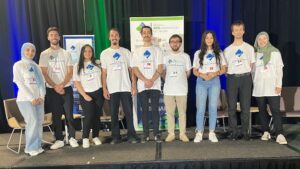
This forum reaffirmed the importance of building bridges between research, technological innovation, and sustainable engagement.
